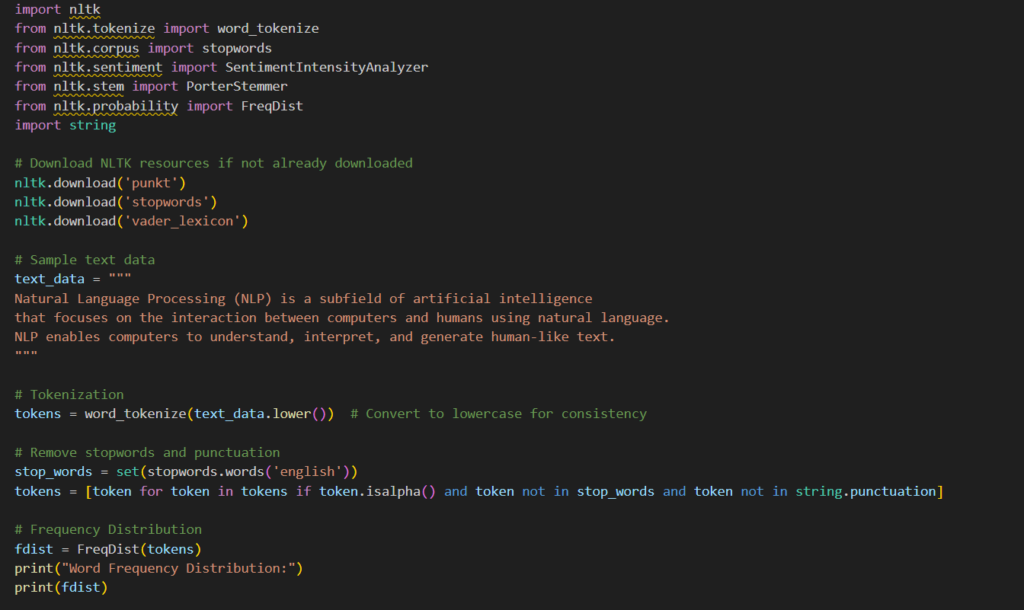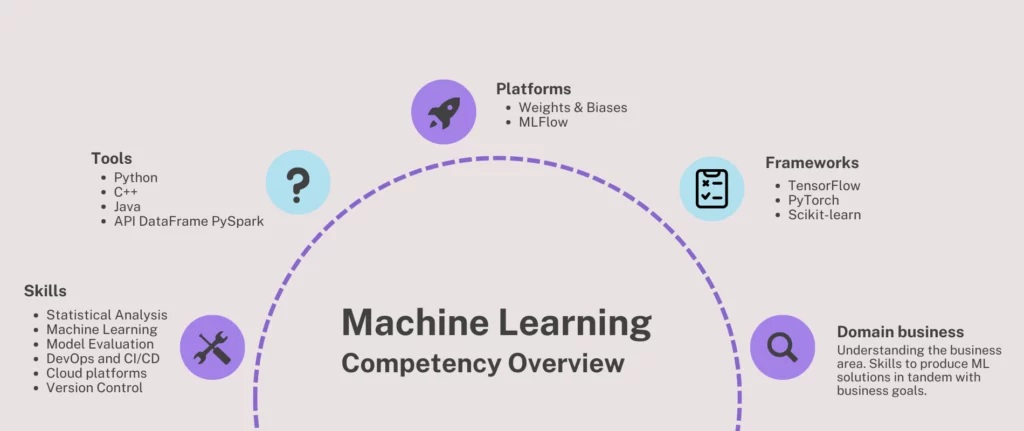A deep dive into Machine Learning engineer’s competencies


Most prominent market leaders such as Microsoft, Apple, Google, Amazon and Univa have been making large investments in ML solutions, both for research and design purposes. The technology experiences enormous growth, which is astonishing even for experienced data scientists. It is no wonder that the role of machine learning engineer has correspondingly witnessed tremendous popularity among IT specialists.
In this post, we bring together the areas of knowledge that any ML engineer needs to master. We demystify the curiosity around the specialisation to shed light on what the role of a machine learning engineer entails. Without further ado, let us first illustrate the relevance of ML by a simple example.

Picture that the e-commerce company decided to hire data scientists to build predictive models. The specialists tackle the task and create the algorithm to recommend users items based on their search interests. Yet, at this point, the company cannot integrate the new feature into the platform; in other words, it struggles with implementing highly accurate and insightful algorithms due to a lack of skills in software engineering.
This is where machine learning specialists come into play. They bridge the discrepancy between the model development phase and its implementation, as they possess the necessary skill set of data scientists and software engineers. They know how to research, create and design AI systems of different complexity to harness expansive sets of data.
Machine Learning as a technology is an offshoot of AI, emphasizing algorithms’ self-education. The latter fosters the prediction of data patterns. Within the traditional ML, statistical instruments are combined with data, enabling predictions to be generated. Smart algorithms do the heavy lifting, and no manual code is needed. The result of ML work is omnipresent across the web, from Netflix recommendations to e-commerce, where machines analyse your preferences to provide tailor-made suggestions afterwards.

For you to extract relevant insights from data, knowing the basics of statistics, including distributions, probability theories, hypothesis testing, and statistical tests, is a must. When you gain an understanding of the main statistical concepts, you will easily design ML models and make predictions in line with data analysis.
Another technical skill implies building highly accurate ML models, e.g. regression algorithms, decision trees and clustering. The machine learning specialist’s task is to ensure the models are sound and contribute perfectly to the user experience.
After building an ML model, it is essential to evaluate its performance carefully. Your evaluation has to contain metrics of the model’s precision and accuracy to ensure it functions in line with expectations. Each time when new data sets enter the system, your algorithm has to adapt to changes. Otherwise, the ML project is at risk of failure.

DevOps philosophy of continuous integration (CI) and continuous deployment (CD) aligns perfectly with ML and emphasises regular evaluation of models. CI is grounded in testing code changes automatically to fix bugs promptly, whereas CD aims to automate code change deployment after the testing phase.
AWS, Google Cloud Platform, Azure and other cloud solutions deliver services explicitly dedicated to creating, training and deploying ML models. Some services akin to Sagemaker are known for robust and low-cost ML algorithm facilitation. At the same time, other solutions (CodeDuild) focus on CI/CD process automation, which results in significant time and resource savings.
Version control provides machine learning engineers with instruments to track revisions of data utilised for algorithm training. The system records changes you made over time, simplifying evaluation and pinpointing things that need to be changed/reverting to the previous setting if required. Additionally, version control fosters seamless collaboration and liberates developers from fear of losing essential data sets of original code.

Most specialists are also expected to have expertise in object-oriented programming and, hence, follow the 5 principles of object-oriented design (SOLID) outlined by Robert C. Martin. These practices are widely used in Agile development and assist in preventing code refactoring. SOLID encompasses 5 principles: Single-responsibility Principle, Open-closed Principle, Liskov Substitution Principle, Interface Segregation Principle, and Dependency Inversion Principle. AI Developer Platform Weights & Biases або MLFlow for the end-to-end machine learning lifecycle.
The simplicity and rich variety of libraries made Python an appealing language for ML. Python proficiency is transferable to data analytics and web development projects. Java is also widely utilised for deploying ML models within the production environment: the language handles distributed and large-scale systems efficiently. Alongside this, knowledge of Java opens possibilities to work with big data technologies, namely Hadoop and Apache Spark. As for C++, this programming language is the most suitable for projects accentuating computational performance. C++ decreases the training time of deep learning models and provides more control over model optimisation. Tensorflow and Pytorc – far-famed ML frameworks – are both written in C++.
Experience with the PySpark DataFrame API, a tool that combines Python and Spark, will be an advantage for a technical specialist in the IT market.

Proficiency in the TensorFlow, PyTorch and Scikit-learn frameworks for complex MN neural network models assists in the design and deployment of Convolutional Neural Networks (for example, image recognition) and Recurrent Neural Networks and Transformers (for text or audio analysis). Skills in using AI Developer Platform Weights & Biases or MLFlow for the end-to-end cycle of machine learning are also important.
The business domain knowledge is critical for technical specialists. The introduction of ML into business requires specialists to understand the conventional laws of a specific business area. Machine learning solutions development is a long and thorough process, which presupposes high financial expenses. The IT company and project developers are to identify and utilise relevant approaches and effective models to provide business with value. Understanding the potential customer’s business areas and combining business needs with machine learning technologies results in the development of practical solutions.
If you need consultation on implementing ML algorithms for your business, feel free to contact the PNN Soft team. Our 20+ years of experience and expertise in innovative technologies will assist you in empowering business solutions.